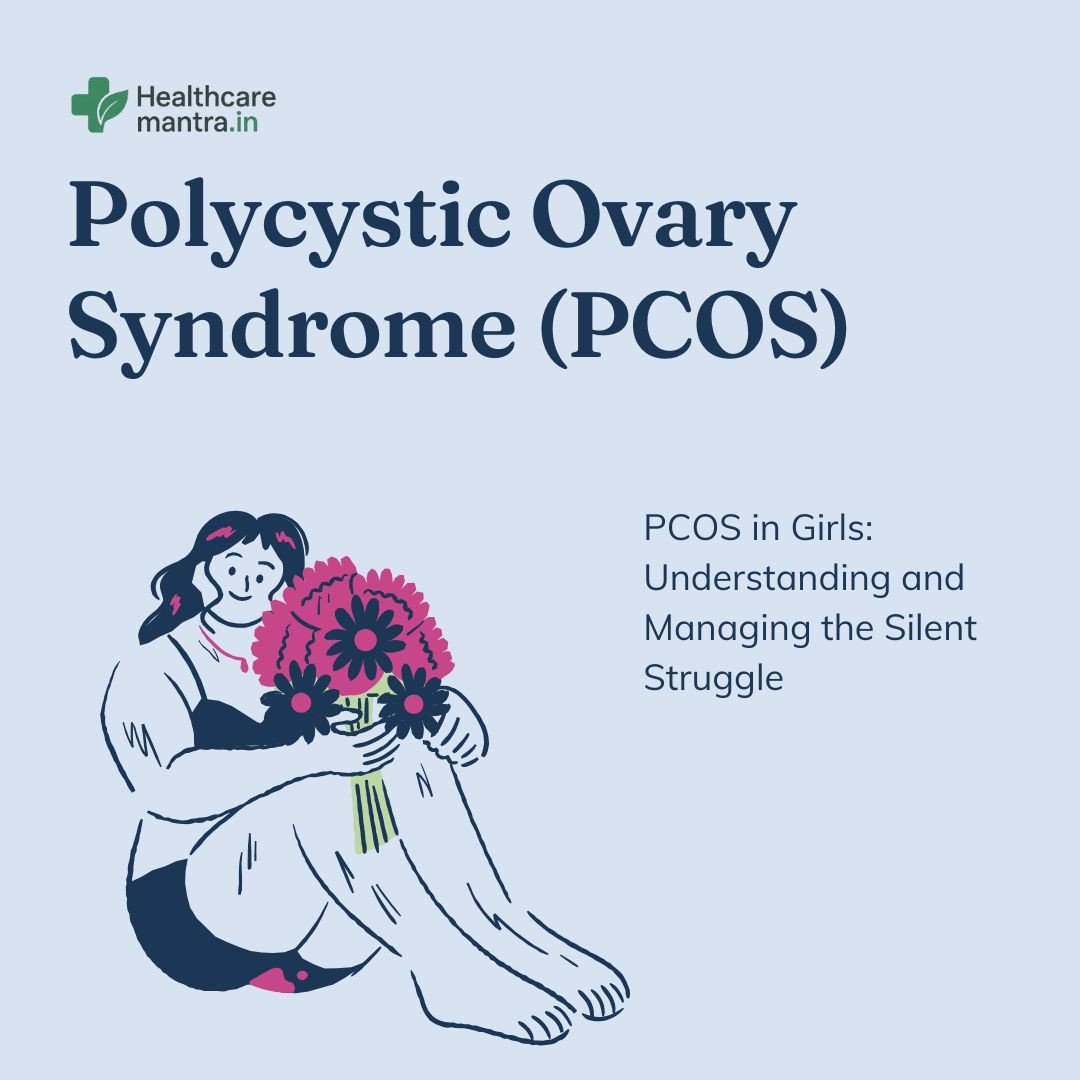
Polycystic Ovary Syndrome (PCOS) has become one of the most talked-about health issues among young women and teenage girls today. While it affects millions worldwide, many still don’t understand what PCOS really is, why it’s becoming more common, and how to manage it effectively. For many girls, PCOS isn’t just a physical challenge—it’s also an emotional journey. Let’s break it down in a simple, relatable way.
What Is PCOS and Why It’s Becoming More Common in Girls
PCOS is a hormonal imbalance that affects the ovaries and reproductive system. Girls with PCOS may have irregular periods, excess male hormones (androgens), and small cysts on their ovaries. But the real story is much deeper.
Why it’s becoming more common:
Lifestyle changes – Increased junk food consumption, irregular sleep, and sedentary habits have made girls more vulnerable.
Stress and environment – Academic pressure, work stress, and exposure to environmental toxins can disturb hormonal balance.
Awareness and diagnosis – More girls are being tested early, so PCOS cases are now identified sooner than before.
Symptoms of PCOS That Shouldn’t Be Ignored
PCOS is often called a “silent struggle” because its symptoms can be mistaken for normal teenage or young adult changes. But some signs need attention.
Key symptoms:
Irregular or missed periods – Skipping months or heavy cycles shouldn’t be overlooked.
Excess hair growth (hirsutism) – Especially on the face, chest, or stomach due to high androgen levels.
Severe acne and oily skin – Persistent breakouts that don’t respond well to regular treatments.
Weight gain or difficulty losing weight – Many girls find stubborn belly fat harder to manage.
Hair thinning on the scalp – A common but often ignored symptom.
If these symptoms continue, consulting a doctor early can prevent long-term health risks like diabetes, infertility, and heart problems.
How Lifestyle and Diet Can Help Manage PCOS
PCOS doesn’t have a one-size-fits-all cure, but lifestyle plays a huge role in managing symptoms.
Lifestyle changes:
Regular exercise – Yoga, walking, strength training, or dancing can regulate hormones and improve insulin sensitivity.
Balanced diet – Focus on high-fiber foods (vegetables, fruits, whole grains), lean proteins, and healthy fats. Cut down processed sugar and refined carbs.
Proper sleep routine – Going to bed on time helps hormonal balance.
Stress management – Meditation, journaling, or even a hobby can reduce stress hormones that worsen PCOS.
Diet tips for PCOS girls:
Include nuts, seeds, and berries for antioxidants.
Try green leafy vegetables daily.
Choose low-GI foods like oats, quinoa, and lentils to keep sugar levels steady.
Emotional and Mental Health Challenges of PCOS
Beyond physical symptoms, PCOS can take a toll on emotional well-being. Many girls struggle silently with body image issues, mood swings, or anxiety.
Emotional struggles often faced:
Low self-esteem – Acne, weight gain, or excess hair can affect confidence.
Anxiety and depression – Hormonal imbalance can trigger mood changes.
Social pressure – Questions about appearance, marriage, or fertility can feel overwhelming.
It’s important to remember that PCOS does not define your worth. Building a support system—friends, family, or support groups—can make the journey less isolating. Professional counseling also helps when emotions feel too heavy to manage alone.
Treatment Options and When to Seek Medical Help
There is no permanent “cure” for PCOS yet, but medical treatments can ease symptoms and prevent complications.
Common treatment approaches:
Medications – Doctors may prescribe birth control pills to regulate periods, or medicines like Metformin to improve insulin resistance.
Fertility treatments – For women struggling with conception, treatments like ovulation-inducing medicines can help.
Cosmetic treatments – Laser hair removal or dermatology support for acne/hair growth.
Holistic support – Ayurveda, acupuncture, and supplements (like Vitamin D, Inositol) can be helpful under expert guidance.
When to see a doctor:
If your periods are irregular for more than 3 months.
If sudden weight gain or excessive hair growth is noticed.
If you’re planning for pregnancy but face difficulty conceiving.
Early diagnosis and consistent management can reduce long-term risks like diabetes, infertility, and heart disease.
FAQs About PCOS in Girls
Q1. Can PCOS be cured completely?
No, PCOS cannot be “cured,” but with lifestyle changes and treatment, symptoms can be managed effectively.
Q2. Does every girl with irregular periods have PCOS?
Not always. Irregular cycles can also be due to stress, diet, or thyroid issues. A doctor’s diagnosis is important.
Q3. Can girls with PCOS get pregnant?
Yes! Many women with PCOS conceive naturally or with medical help. PCOS may make it harder but doesn’t make pregnancy impossible.
Q4. Is PCOS genetic?
Yes, genetics can play a role, but lifestyle factors also contribute significantly.
Q5. At what age does PCOS usually start?
PCOS often begins around puberty, but symptoms may become more noticeable in the late teens or early twenties.
Conclusion
PCOS in girls is not just a physical condition—it’s a lifelong management journey that requires awareness, discipline, and support. While it can feel overwhelming, the good news is that lifestyle changes, emotional care, and timely medical help can make a huge difference.
If you or someone you know is facing PCOS, remember: you’re not alone, and managing it step by step can bring balance back to life. The key is early awareness, consistent care, and a positive mindset toward health and well-being.